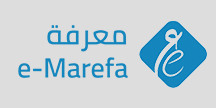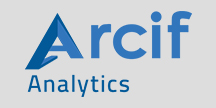Thinking Styles and its Relationship with Self-Efficacy
DOI:
https://doi.org/10.21271/zjhs.25.5.14Keywords:
Thinking Styles, Self-efficacy, University academic staff.Abstract
Thinking is one of the essential cognitive processes in human's life, however the nature of its correlation with self-beliefs that an individual holds is overlapping and unclear. To clarify such overlap, also to shed lighter on the nature of interrelation between specific thinking style and self-efficacy of an individual, current study aims to investigate the correlation between thinking styles and self-efficacy by employing descriptive correlational research method among a sample of academic staff at Salahaddin University-Erbil (n = 243). To measure the current study variables, the list of thinking styles (Sternberg & Wagner 1991) used to measure thinking styles. Also, the measure of self-efficacy (Jerusalem & Schwarzer, 1986) used to measure self-efficacy. The findings indicate that there is variance in correlations between self-efficacy and thinking styles. Self-efficacy significantly correlates with legislative thinking, executive thinking, internal thinking, monarchic thinking, and liberal thinking. Whereas self-efficacy is not significantly correlated with judicial thinking, global thinking, local thinking, conservative thinking, hierarchic thinking, oligarchic thinking, anarchic thinking, and external thinking. Also, the results showed that there are differences in thinking styles according to academic ranks. Finally, current study came out with a few recommendations and suggestions.
References
5 المصادر العربية
أبو هاشم،ا. م.، 2007. الخصائص السيكومترية لقائمة أساليب التفكير في ضوء نظرية ستيرنبرج لدى طلاب الجامعة. جامعة ملك سعود، كلية التربية، مركز بحوث كلية التربية.
بدر،أ. وآخرون، 1980. التفكير العلمي للمرحلة الثأنوية. الطبعة الاولى. الكويت: وزارة التربية.
حبيب، م. ع.، 1996. التفكير (الأسس النظرية والاستراتيجيات. القاهرة: مكتبة النهضة المصرية.
خصاونة، أ. والعابد، ع.، 1992. تطور القدرة على التفكير المنطقي الرياضي لدى طلبة مرحلة التعليم الأساسي والطلبة المعلمين. مجلة أبحاث اليرموك: سلسلة العلوم الأنسأنية والاجتماعية، 8(3)، ص. 175 – 202.
الربيع، ف.، الشواشرة، ع. وحجازي، ت.، 2014. التسويف الأكاديمي وعلاقته بأساليب التفكير لدى الطلبة الجامعين في الأردن. المنارة للبحوث و الدراسات،مج. 20، ع. 1ب، ص. 199-234.
رضوأن، س.، 1997. توقعات الكفاءة الذاتية "البناء النظري والقياس". مجلة شؤون اجتماعية، 2(33)، ص. 23–03.
الزوبعي، ع.، بكر، م.، الكنأني، ا.، 1982. الاختبارات و المقاييس النفسية. الموصل: مطابع دار الكتب لطباعة والنشر.
صحراوي، و.، 2013. الثقافة التنظيمية وعلاقتها بالضغط المهني والولاء التنظيمي وفعالية الذات لدى طلبة الجامعة. اطروحة دكتورا غير منشورة، كلية العلوم الأنسأنية والاجتماعية، قسم علم النفس وعلوم التربية والأرطفونيا، جامعة جزائر.
عبدالخالق، أ. م.، 2017. الذات الإيجابية وعلاقتها بالعصابية. مجلة علم النفس، 113، ص.31 – 47.
غالب، ر. م.، 2001. أساليب التفكير لدى معلمي الثأنوية قبل الخدمة. مجلة الدراسات الاجتماعية، 6(1)، ص.7–32.
اللهيبي، ن. ح.، 2000. أساليب التفكير المفضلة لدى معلمي ومعلمات التعليم العام بمكة المكرمة. رسالة ماجستير غير منشور، كلية التربية، جامعة أم القرى.
المزروع، ل. ع.، 2002. علاقة هوية الأنا بفاعلية الذات والذكاء الوجدأني لدى عينة من المراهقات (موهوبات – عاديات) بمكة المكرمة. دراسة غير منشورة، جامعة أم القرى.
الوطبأن، م. س.، 2006. مهارات ما وراء المعرفة لدى مرتفعي ومنخفضي الفاعلية الذاتية من طلاب جامعة القصيم. مجلة رسالة التربية وعلم النفس، (27)، ص. 27–46.
5 المصادر الاجنبية
Bandura, A., 1977. Self-efficacy: Toward a unifying theory of behavioral change. Psychological Review, 84(2), pp.191–215. https://doi.org/10.1037/0033-295X.84.2.191
Bandura, A., 1982. Self-efficacy mechanism in human agency. American Psychologist, 37(2), pp.122–147. https://doi.org/10.1037/0003-066X.37.2.122
Bandura, A., 1983. Self-Efficacy Determinants of Anticipated fear and Calamities. Journal of Personality and Social Psychology, 45(2), pp.464-469. https://doi.org/10.1037/0022-3514.45.2.464
Bandura, A., 1993. Perceived self-efficacy in cognitive development and functioning. Educational Psychologist, 28(2), pp.117–148. https://doi.org/10.1207/s15326985ep2802_3
Bandura, A., 1994. Regulative function of perceived self-efficacy. In M. G. Rumsey, C. B. Walker, & J. H. Harris (Eds.), Personal selection and classification (pp.261-271). Hillsdale, NJ: Erlbaum.
Bandura, A., 1997. Self-efficacy: The exercise of control. New York: Freeman.
Bandura, A., 2006. Guide for constructing self-efficacy scales. In F. Pajares & T. Urdan (Eds.). Self-efficacy beliefs of adolescents, (Vol. 5., pp.307-337). Greenwich, CT: Information Age Publishing
Beyer, B. K., 1988. Developing a Scope and Sequence for Thinking Skills Instruction. Educational Leadership, 45(7), pp.26-30.
Coetzee, H.S. and de Boer, A., 2000. The Thinking Preferences of Learners in Cataloguing and Classification: Summary of a Study of Second Year Learners at the University of Pretoria. 66th IFLA Council and General Conference, Jerusalem, Israel, 13-18 August.
Harrison, A. F. and Bramson, R. H., 1982. Styles of Thinking: Strategies for Asking Questions, Making Decisions and Solving Problems. New York: Kopf Doubleday.
Jansson, L. C., 1986. logical reasoning hierarchies in mathematics. Journal for Research in Mathematics Education, 17(1), pp.3-20. doi: https://doi.org/10.5951/jresematheduc.17.1.0003
Jerusalem, M., and Schwarzer, R., 1986. Selbstwirksamkeit [Self-efficacy]. In R. Schwarzer (Ed.), Skalen zur Befindlichkeit und Persönlichkeit. Research Report No. 5 (pp.15-28). Berlin: Freie Universität, Institut für Psychologie.
Krampen, G., 1989. ‘Diagnostik von Attributionen und Kontrollüberzeugungen. Theorien, Geschichte, Probleme’ (Diagnostic of attributions and locus of control. Theory, history and problems), in G. Krampen (Ed.) Diagnostik von Attributionen und Kontrollüberzeugungen (Diagnostic of attributions and locus of control) (pp.3–19). Göttingen: Hogrefe.
Lomb, K., 1995. Így tanulok nyelveket [This is how I learn languages] (4th ed.). Budapest: AQUA Kiadó.
Roberge, J. J. and Carven, P. A., 1983. Deductive Reasoning and its Relationship to Reading Comprehension. School Science and Mathematics, 83(1), pp.69-76. https://doi/abs/10.1111/j.1949-8594.1983.tb10092.x
Schwarzer, R., 1994. Optimism, vulnerability, and self-beliefs as health-related cognitions: a systematic overview. Psychology & Health, 9(3), pp.161-180. https://doi.org/10.1080/08870449408407475
Sternberg, R. J. and Wagner, R. K., 1991. MSG Thinking Styles Inventory Mannual. Unpublished Manuscript.
Sternberg, R. J., 1994. Thinking styles: Theory and assessment at the interface between intelligence and personality. In R. J. Sternberg and P. Ruzgis (Eds.), Personality and intelligence (pp.169–187). New York: Cambridge University Press.
Sternberg, R., 1988. Mental self-government: A theory of intellectual styles and their development. Human Development, 31(4), pp.197–224. https://doi.org/10.1159/000275810
Sternberg, R., 1997. Thinking styles. New York: Cambridge University Press.
Zimmerman, B. J., 2000. Attaining self-regulation: A social cognitive perspective. In M. Boekaerts, P. R. Pintrich, & M. Zeidner (Eds.), Handbook of self-regulation (pp.13–39). Academic Press.
Downloads
Published
How to Cite
Issue
Section
License
Copyright (c) 2024 Saeed Muhammad Nuri Tahir Bebane

This work is licensed under a Creative Commons Attribution-NonCommercial-ShareAlike 4.0 International License.
Except where otherwise noted, content on this site is licenced
under a Creative Commons Attribution License 4.0 (CC BY- 4.0)










